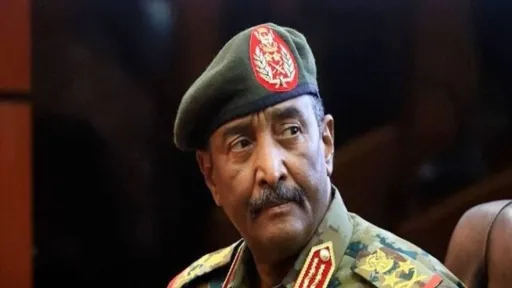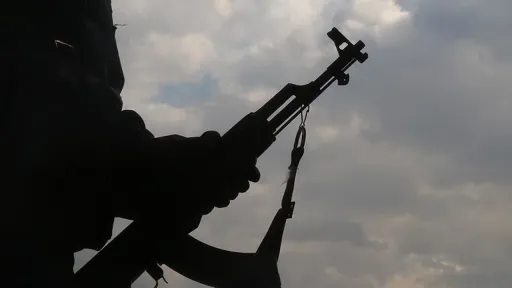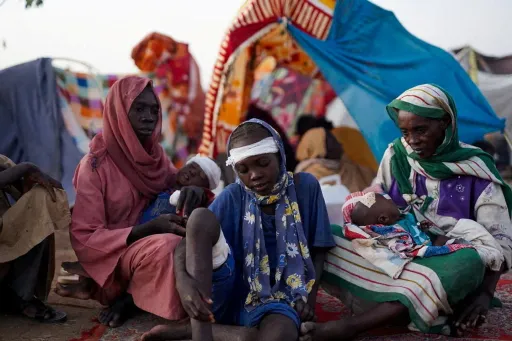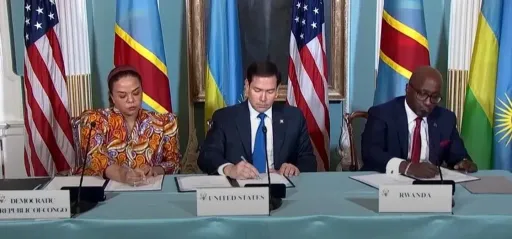By Firmain Eric Mbadinga
The French writer Honoré de Balzac's three-part novel, Illusions perdues (Lost Illusions), has an entire chapter dedicated to what he describes as the "prodigious cumulative effect" of prison on a person's morale.
"Incarcerated people," he writes, "feel so violently upset during their first night."
At a detention centre located in the heart of Baporo village in Sanguié province of Burkina Faso, the concept of an open-air prison designed to reform rather than reprimand enables the inmates to escape the feeling of hopelessness Balzac so eloquently describes in his novel.
The idea is to allow the prisoners to learn from their mistakes and pick up trades and skills that give them a second shot at leading a normal life.
Based on specific criteria, the inmates are primarily trained in trades related to agriculture and livestock farming to facilitate their return to society on their release from prison.
In Africa, Burkina Faso was among the first countries to subscribe to the moral and physical rehabilitation of people sentenced to terms other than life imprisonment or death.
In 1986, in the heart of Baporo, an agricultural penitentiary centre was built over 100 hectares at the initiative of the late President Thomas Sankara.
Over time, the detention centre has suffered an inevitable decline under various political regimes in the West African country. The good news is that the current dispensation has decided to revive it by revitalising the activities at the centre.
On December 6 last year, Sabila Sawadogo, director general of the Burkina Faso Prison Administration, stated at an official presentation on agropastoral activity that inmates of the Baporo detention centre produced dozens of tonnes of fruit and vegetables in 2023.
Around 40 hectares of the prison's open-air zone are used as farmland to grow bananas and vegetables, besides rearing cattle using modern animal husbandry techniques.
While the objective is to prepare the inmates for a vocation once they step out of the confines of the centre, there is another significant benefit.
The agricultural produce is used to feed the inmates of all the prisons in Burkina Faso, and the surplus goes to the markets. The proceeds go into the treasury, Sawadogo said at the December event.
Romaric Ndembi Moussoiami, a Gabonese clinical psychologist, sees the rehabilitation programme as a valuable societal model.
As an expert in psychopathology, he encourages consistently humane treatment of the people chosen to work and learn in the open-air prison based on an assessment of their general conduct.
"Prisoners' feelings must be taken into account, and their dignity respected. The risk would be that they would just be used as labour, given their status. Open-air prison or not, it must meet specific detention criteria. Otherwise, the project won't work," Moussoiami tells TRT Afrika.
The psychologist also believes that in addition to income-generating activities for the centre or the inmates themselves, literacy programmes, role-playing, sports, and courses in practical trades such as cooking and pastry-making could strengthen the range of training at the Baporo detention centre.
Crux of rehabilitation
Experts say that the success of any rehabilitation programme depends primarily on the sincerity and the willingness of those involved in it — inmates and prison staff – to bring about the required change.
"There are many examples of former convicts starting life afresh and transforming into societal role models. These people have integrated and found their way," says Moussoiami.
The President of the transition administration in Burkina Faso, Captain Ibrahim Traoré, is convinced about the potential of the penitentiary centre and has been the driving force behind its revitalisation.
"Depending on what each prisoner can do, we will allow him to do it. They are going to produce for the population," Traoré has been quoted as saying.
Sawadogo said at the event last December that the centre requires a facelift to provide a pleasant environment for prisoners and the prison staff overseeing their rehabilitation.
"The centre needs new dormitories. The existing ones can hold no more than 44 inmates. We also need resources for large-scale digging of our arable land. We need to rebuild our pumping station, which is permanently submerged during the rainy season. Conversely, we cannot save our crops during a drought," he said.
The authorities hope to start fish farming shortly as part of an initiative to expand the activities of the Baporo detention centre.
Similar facilities for the social reintegration of people housed in prisons elsewhere in the country are part of the larger plan.
F'Ollo Obiang, deputy secretary general of SOS Prisoners Gabon, also calls for efforts beyond the scope of rehabilitation through open-air prisons.
"Apart from the efforts already made in countries such as Burkina Faso, we need greater involvement of society in such initiatives to ensure the natural integration of people trained in prison once they regain their freedom," he tells TRT Afrika.
➤Click here to follow our WhatsApp channel for more stories.




























